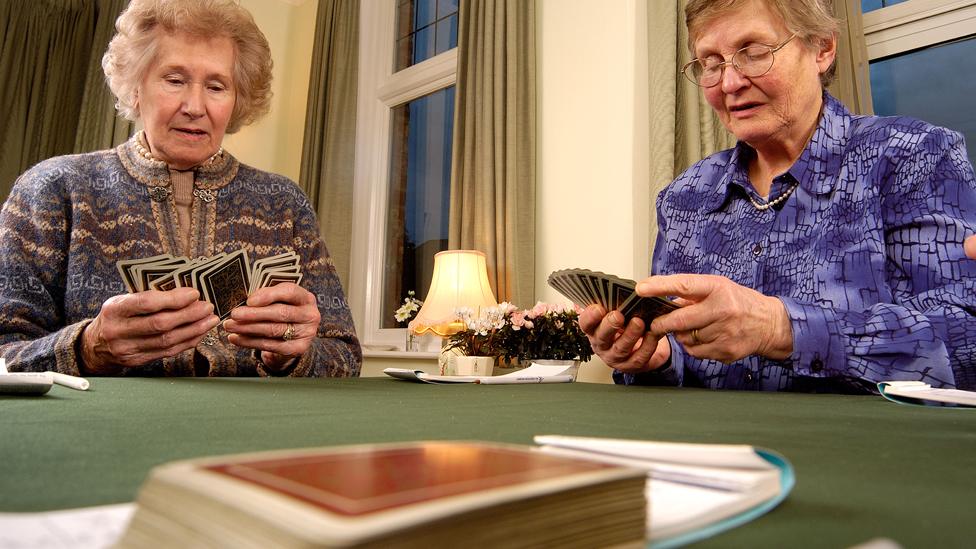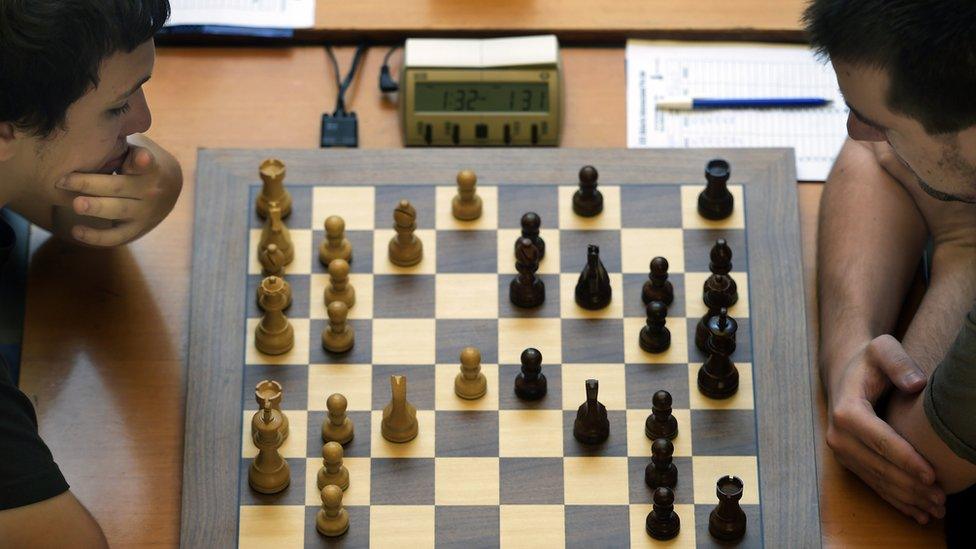Who, What, Why: Do bridge and chess make you fitter?
- Published

Sport England is refusing to classify the card game bridge as a sport, arguing it doesn't do enough to "get the nation fitter". Is this right, asks Justin Parkinson.
Players complain that they are exhausted, physically as much as mentally, after long games of bridge, chess or poker. But the government body Sport England is refusing to fund the English Bridge Union, external, stressing that sport must be an "activity aimed at improving physical fitness and well-being".
Drawing from calculations in a book on exercise physiology, a person weighing 70kg (11 stones) would use 105 calories an hour playing card games, as a leisure pursuit rather than at tournament level, says Mark Burnley, senior lecturer in sport and exercise at the University of Kent. He adds this is "essentially identical in terms of energy expenditure" as sitting still for the same period.
Heather Dhondy, a member of England's women's bridge team, admits it "doesn't involve a great deal of physical activity" but still requires fitness as people "can be playing up to nine hours a day".
Chess grandmasters use between 6,000 and 7,000 calories a day, external when competing, Robert Sapolsky, professor of neurology at Stanford University, has said. They are "turning on a massive physiological stress response simply with thought and doing the same thing with their bodies as if they were some baboon who has just ripped open the stomach of their worst rival and it's all with thought, and memories and emotions".
"Players lose weight during tournaments," says Daily Telegraph chess correspondent Malcolm Pein. "It's like facing your final exams for nine days running, with exams lasting five hours at a time and the questions constantly changing." Timed games sometimes make dexterity important too, he adds, remembering that he once had to make three moves in a second to beat the clock.
But Burnley is sceptical of Sapolsky's calorific figure, saying: "That's the sort of level you would expect while doing a stage of the Tour de France."
Whatever their tournament energy output, physical preparation such as swimming or running is common among elite-level chess players. Top players of poker train more and eat well, external to improve stamina.

Burnley argues there is "little evidence" to show physical fitness improves performance at chess, poker and bridge. But Pein disagrees. "I stopped playing chess professionally when I got into my forties," he says. "I couldn't keep up with the pace for more than four hours. It's very physical."
Subscribe to the BBC News Magazine's email newsletter, external to get articles sent to your inbox.